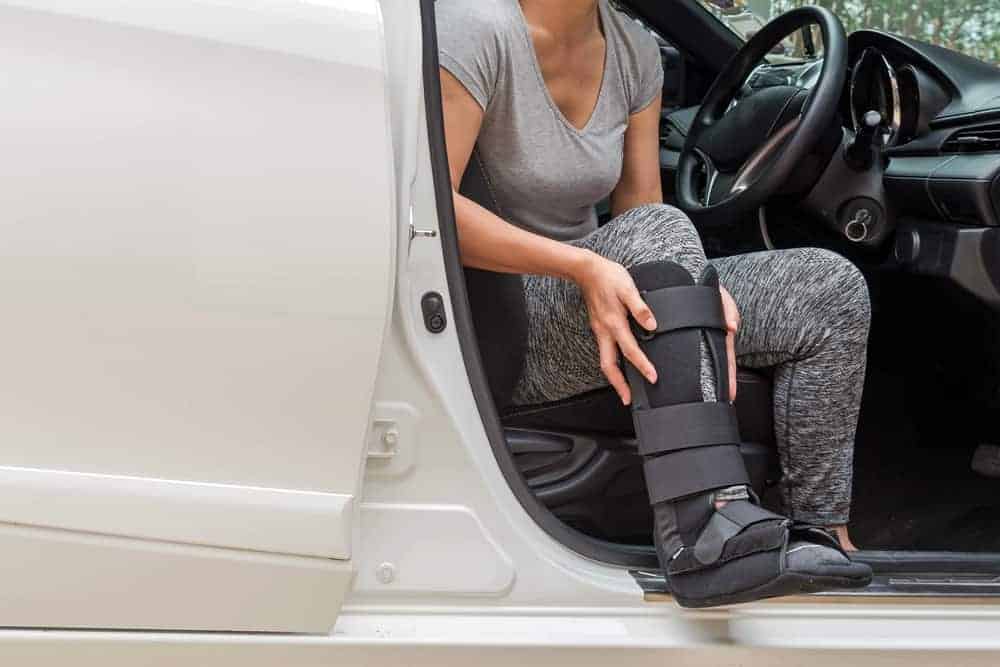After a car accident, you may expect to feel pain or soreness throughout your body, so it may catch you off guard to actually experience a numb or tingling feeling instead. While this may sound preferable to extreme pain, numbness in your extremities can actually be a sign of many serious injuries from a car accident. These symptoms are usually a sign that you should seek medical care quickly to identify the cause of the numbness and rule out any serious conditions.
Why Numbness May Indicate Spinal Injury
One of the main causes of numbness and tingling is a nerve becoming pinched or impinged in the spinal column. A common way this happens is when a disc herniates, or the gelatin-like cushions between your vertebrae are moved out of place or ruptured. The disc then places pressure on the nerve, leading to nerve compression syndrome. This can typically be treated like many injuries from car accidents, through therapy and pain management, but severe cases can necessitate surgery and other invasive options.
In general, the reason for numbness after an accident is usually related to nerve damage caused by a spinal injury. Because the spine controls the central nervous system, any injury to the spine can lead to a breakdown in communication between the nerves. When the impacted nerves help you feel your legs, you may notice numbness as the first sign of this dysfunction.
Symptoms of Nerve Damage
It can be hard to identify nerve damage as it is not a common injury we look for in day to day life. However, because it often occurs during a car accident, it is important to look out for signs of nerve damage in the aftermath.
Numbness or tingling in any part of the body, particularly the legs, is a sign of nerve damage. This may feel like when your leg is “asleep” after a loss of circulation, but does not improve over time. Any paralysis of the limbs is also a sure sign that you should visit a specialist.
Pain that radiates down the arms or legs, or just general pain and muscle weakness, can be indicators of nerves damaged as a result of a spinal injury. You may also notice an increased sensitivity to both hot and cold temperatures on the skin or small, uncontrollable movements of the muscles, including twitching.
While some symptoms may come and go, nerve damage is a serious issue that can take a long time to heal. Your individual recovery will vary based on the severity of the injury and your doctor’s plan, but earlier intervention can help prevent long term effects of nerve damage.
Common Causes of Nerve Damage in a Car Accident
In addition to herniated discs, a number of other injuries from car accidents can lead to nerve damage, even ones you might not realize. Whiplash, which is the most common car accident injury, occurs when the head and neck jerk quickly, stretching the nerves in this area. This can lead to a pinching of the nerves or extra pressure from swelling in the spine. While you may experience other pain from whiplash, nerve damage can be a contributing factor.
In a car accident, you are also at risk of blunt force trauma, where the head or another body part collides with a hard surface. This can be the dashboard, window, another passenger, or even the pavement if you are ejected from the vehicle. This initial impact can compress nerves, leading to nerve issues. A deep cut or laceration can even sever the nerves in the surrounding area.
Treatment for Nerve Damage
Because nerve damage can be caused by many different things and can affect many parts of the body, each person’s plan for treatment will be different. When nerve damage is causing numbness in the legs, treatment will begin by identifying where and how the nerve damage occurred before building out a plan to restore proper nerve function.
There are a lot of benefits of physical therapy after a car accident. Physical Therapy is a common method of helping to reduce pressure on nerves, manage pain and tingling sensations, and increase range of motion. Paired with chiropractic adjustments to align the spine, this is likely to be part of the plan to treat any injury from a car accident. When nerves have been damaged, this can be paired with anti-inflammatory treatments, or even steroid treatments when called for, to help with healing.
At AICA Orthopedics, our team of multidisciplinary specialists works with car accident victims every day and is skilled at helping to diagnose and treat nerve damage. If you experience any numbness or tingling in your legs following a car accident, contact us immediately to begin your personalized treatment plan and prevent further nerve damage.





